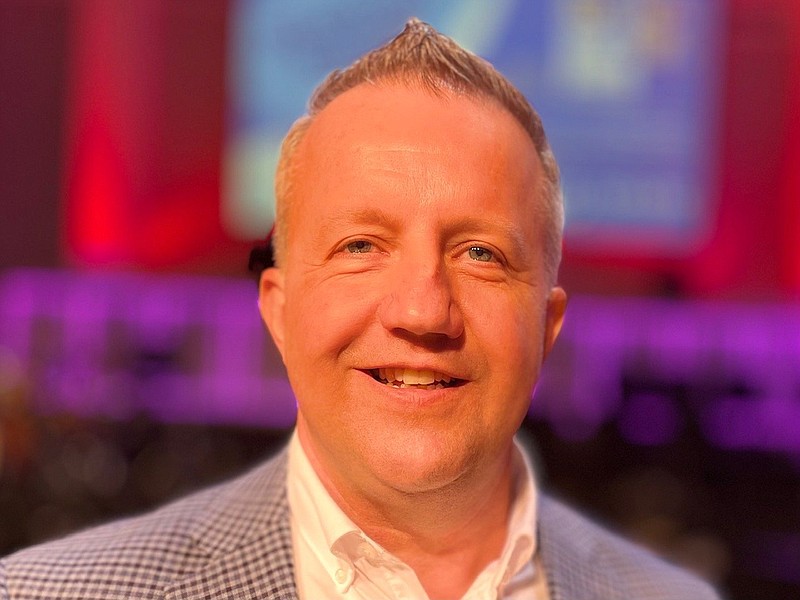The Arkansas Baptist State Convention approved a number of proposals Tuesday aimed at preventing and better responding to sexual abuse when it occurs within the church.
The organization's Sexual Abuse Task Force, which was established a year ago to study the issue, had made the recommendations in a report released earlier in the day.
Voting members, known as messengers, swiftly adopted the recommendations during the first day of the convention's 169th annual meeting.
They called for:
• Creating a new Standing Sexual Abuse Response and Resource Team, entrusting the task to the convention president. The team would "provide support to any [state convention] church or agency or institution in the handling of a crisis situation as it relates to sexual abuse." No congregation would be required to use its services or follow its guidance.
• Requiring "trustees of the Executive Board, agencies, and institutions" to undergo criminal background checks "as a condition of service."
• Screening churches that petition the convention for admission to ensure they haven't "mishandled sexual abuse allegations" and that there aren't any "ongoing issues as it pertains to sexual abuse."
• Participating in the Southern Baptist Convention's Sexual Abuse Assessment once it becomes available. Southern Baptist officials have described the assessment as "a voluntary initiative designed to hear from survivors, pastors, and lay people to understand how churches have dealt with the issue of sexual abuse."
• Allocating funds to support the new Sexual Abuse Response and Resource Team.
The seven-member task force included four pastors, one attorney, one social worker and one sexual abuse survivor.
Brad Lewter, pastor of Grand Avenue Baptist Church in Fort Smith and the task force's chairman, said its members had sought out "best practices" to "ensure the policies and procedures of the Arkansas Baptist State Convention are above reproach in handling sexual abuse allegations."
The report contained no mandates for local congregations.
"While we understand that the ABSC has no authority over the local church, our prayer is that this report will compel churches to take appropriate steps, if they have not done so already, to ensure they are prepared to handle such issues," he added.
In an interview afterward, Lewter said the resource team, once it is formed, will offer valuable assistance to congregations across Arkansas.
"They'll have a resource, free of charge, to come alongside them, look at their policies ... do training and help them as they engage to become a safer church," he said.
Participation will be optional.
"The autonomy of the local church is our bread and butter, so they have to choose to do it. And if they will, I think they can become safer churches," he said.
Larry D. White, the convention president and pastor of Woodland Heights Baptist Church in Conway, said implementing the changes would be one of his top priorities if he is elected to a second term.
Traditionally, the state convention president is re-elected to a second one-year term without opposition. White's name was the only one placed in nomination when he was elected to his first term one year ago.
White thought it was important to include a survivor on the task force.
The survivors he's spoken with, "They just wanted some justice to be done, for the perpetrator to be dealt with, and to clean up the system."
It's important for survivors to speak out and for churches to hear them, he said.
"There's some terrible examples of failure but, for the most part, people are there to help," he said. "Keep talking until somebody listens."
Stephanie Davis, a member of First Baptist Church in Benton, was targeted by a predatory minister when she was a high school freshman in 1983. She remains a strong Baptist and agreed to serve on the task force after White asked her to do so.
In an interview Tuesday, she said churches can't afford to ignore or cover up abuse.
"Like my own experience, the minister was just able to resign," she said. "The church, as a whole, didn't know what happened and he went on to ministry in other churches and other states for another 30 years."
For years, she lived with guilt and blamed herself for what had happened.
Today, she emphasizes the importance of shielding churchgoers from predators.
"I just feel that we have to protect our congregation, our children, and that we have to stand up for them," she said. "We can't just push it under the rug. The people are more important than the church building ... and its name."
The Southern Baptist Convention is the nation's largest Protestant denomination, reporting 13.7 million members and 47,614 churches. That includes 1,406 churches and 96 missions in Arkansas with 412,657 members, according to a report prepared by Lifeway Research.
In May, the denomination released a 288-page independent report detailing previous denominational efforts to discredit accusers and to derail reform efforts.
It subsequently released a list of hundreds of alleged abusers, posted at https://www.sbc.net/satf/ , including at least 15 with ties to Arkansas.
David Clohessy, the former executive director of SNAP (the Survivors Network of those Abused by Priests), said Southern Baptists have long used church autonomy as an excuse for inaction.
SNAP describes itself as the oldest and largest support group for those wounded by religious leaders.
"It's a very convenient and shrewd legal and PR strategy, and it's worked for Baptist officials for so long," Clohessy said. "I understand why they still cling to it. But morally, it's inexcusable."
Lewter told messengers the convention is working to "develop better strategies to assist and equip local churches."
Baptists hope to "send a message, finally, to survivors that we care and that we are committed to best practices," he said.
